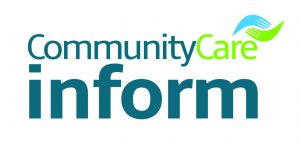
By Anna Glinski, deputy director, knowledge and practice, Centre of expertise on child sexual abuse
Sexual abuse between siblings is thought to be the most common form of intra-familial child sexual abuse (around three times as common as abuse by a parent), so as social workers we are almost certainly likely to encounter it in our practice. But identifying, assessing and responding appropriately and proportionately to sibling sexual abuse presents particular challenges as it is rooted in the wider family dynamic and both the individual harmed and individual who has harmed are children.
Taboos and cultural assumptions about sibling relationships may lead to abuse being overlooked; on the other hand, powerful emotions about children behaving in sexualized ways can mean that when professionals do have concerns, they can feel out of their depth and anxious.
Consideration of sexual abuse between child siblings is particularly important at the moment given the significantly increased pressures on families due to Covid-19 restrictions. The constant juggling of work, home-schooling and caring can place unprecedented strain on the family unit and result in children spending more time unsupervised. In combination, this presents increased risks of abuse and harm.
Reducing risk, building strengths
Not all sexual interactions between children and siblings are abusive and in some cases sibling sexual interactions may be normal, exploratory and mutual. However, it is vital practitioners feel confident to assess, understand and talk about what has happened.
Behaviour that is inappropriate, problematic or abusive needs to be addressed proactively, with all family members being supported. Both the child who has been harmed and the child who has harmed are first and foremost children, and both will have needs that need to be addressed. With the right intervention, the majority of children and young people who sexually harm others do not go on to abuse as adults. As social workers we play a key role in reducing risk, building strengths and preventing the risk of future harm.
A key aim of the CSA Centre is supporting professionals to improve our collective ability to identify and respond to child sexual abuse. Our new report, ‘Sibling sexual abuse: a knowledge and practice overview, is geared to helping professionals understand the issues and challenges raised and feel confident in responding and intervening to support families to address the behaviour and move forwards. The authors of the report, Stuart Allardyce, director at Lucy Faithful Foundation, and Dr Peter Yates, lecturer and programme lead in social work at Edinburgh Napier University, draw on an overview of the current research and practice knowledge and, crucially, a wealth of practice experience.
Supporting families to move on from harm and distress
We commissioned the report specifically with social workers in mind, so we hope practitioners will find much they can take into their work. With 16 years’ experience of frontline child protection work myself, 12 of those focusing on child sexual abuse, I believe it offers invaluable guidance us on how to assess and manage situations involving sibling sexual abuse, and provide support for all family members to move on from harm and distress.
It considers a number of issues for social work practice, including understanding the dynamics of sibling relationships, and differentiating between normative, problematic and abusive behaviour. Two further vital areas for me are the importance of a family-intervention approach, and the broader context of the lives of both the siblings.
Working with the whole family
The report points out that sibling sexual abuse is commonly experienced as a crisis within the whole family – not just the siblings involved – so a full-family holistic response entirely makes sense. We know that parents and carers can feel torn between the needs of the child who has harmed and the child who has been harmed: perhaps experiencing shame, denial, or feeling completely overwhelmed. Of course, it’s a challenging thing to acknowledge, and each family will react differently.
The report explains that we must not inappropriately pathologise what may be the family’s coping strategies, but instead help them to process and make sense of this new information. A consideration of the whole family is needed in the context of healing and support as well as understanding the occurrence of abuse, and structures to manage it. Effective family support is reliant on our understanding of culture in the context of the family system, and the role that family culture may offer in terms of support and recovery.
Addressing children’s wider experiences and needs
In exploring the family context, we must also consider the wider experiences of the children. By looking holistically at their lives, and not to just the parameters of sibling sexual abuse, we can take the necessary steps to ensure their safety and recovery.
Children who have sexually abused a sibling may often have experienced abuse and trauma themselves, and must be given support. Research has fundamentally demonstrated that children and young people who sexually harm are different from adult offenders; they are not ‘mini-adult sex offenders’ and addressing their needs holistically within a family-intervention approach allows us to step back and reaffirm this. By setting clear boundaries and providing redirection and input about healthy relationships, as well as ensuring their broader needs are met, it is possible for children to get back to a more positive developmental pathway.
The report stresses that there is cause for confidence that, through the work we do, the therapeutic goal of families healing and moving forward from the abuse is possible. We hope that drawing on this report, professionals and teams can build their confidence in embracing this approach and more families will be fully supported. The CSA Centre is also currently developing a further practical resource to accompany this evidence review.
Read the full report here. The Centre of expertise on child sexual abuse aims to reduce the impact of CSA through improved prevention and better response.
 Resources on Community Care Inform
Resources on Community Care Inform
CC Inform has worked with the CSA Centre on a
knowledge and practice hub on intrafamilial child sexual abuse, which includes a range of resources that can support practitioners in taking a ‘whole family’ approach. These include:
– a learn as a group exercise (approx one hour) to support practitioners in considering how to work with parents in cases of sibling sexual abuse
– an anonymised case consultation with a family therapist that considers how to work with seven-year-old Rachel, who has been abused by her 14-year-old brother and her family.
Not sure if you have access to Community Care Inform through your organisation or have other questions? Find help here.


 Bournemouth, Christchurch and Poole
Bournemouth, Christchurch and Poole  Hampshire County Council
Hampshire County Council  Lincolnshire County Council
Lincolnshire County Council  Norfolk County Council
Norfolk County Council  Northamptonshire Children’s Trust
Northamptonshire Children’s Trust  South Gloucestershire Council
South Gloucestershire Council  Wiltshire Council
Wiltshire Council  Wokingham Borough Council
Wokingham Borough Council  Children and young people with SEND are ‘valued and prioritised’ in Wiltshire, find inspectors
Children and young people with SEND are ‘valued and prioritised’ in Wiltshire, find inspectors  How specialist refugee teams benefit young people and social workers
How specialist refugee teams benefit young people and social workers  Podcast: returning to social work after becoming a first-time parent
Podcast: returning to social work after becoming a first-time parent  Podcast: would you work for an inadequate-rated service?
Podcast: would you work for an inadequate-rated service?  Family help: one local authority’s experience of the model
Family help: one local authority’s experience of the model  Workforce Insights – showcasing a selection of the sector’s top recruiters
Workforce Insights – showcasing a selection of the sector’s top recruiters 

 Facebook
Facebook X
X LinkedIn
LinkedIn Instagram
Instagram
One judge in family court stated quite categorically that sex between siblings is normal.
My granddaughter was the victim of this normal occurrence.
Unbelievable
Oh how sad for victims to be spoken about like this. In whose world is sexually harmful behaviour between siblings normal???? How can a sibling give consent to this in any case by law, if they are under the age of consent. I am really concerned about any information that appears to normalise this issue. Just because it is common, does not make it ok. Is this another example of the power imbalance in our patriarchal society?
I totally agree..nothing normal about sibling sexual abuse?!
Tell that to a ‘survivor’ who has been abused by their sibling(s) for years on end..Despicable to even suggest this!